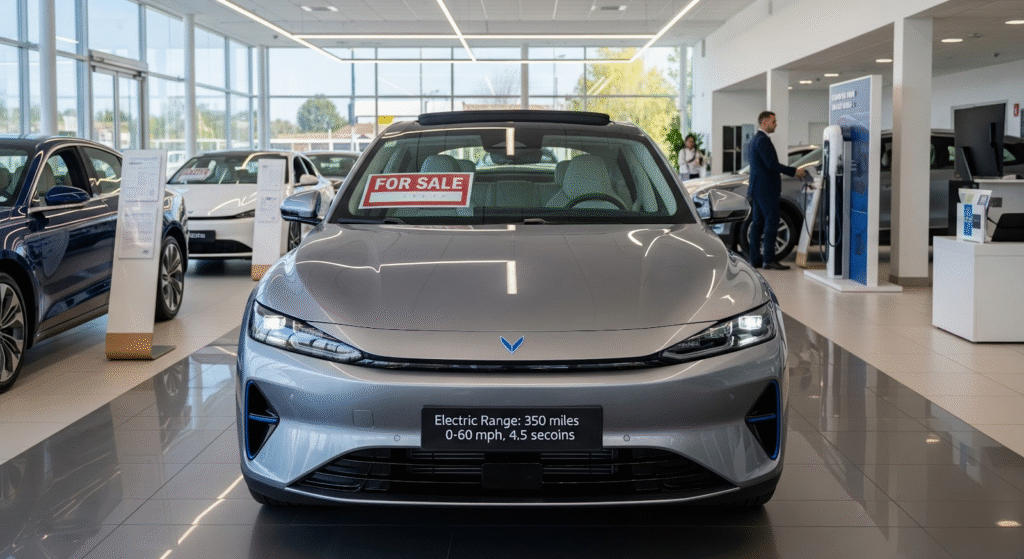The demand for cleaner and greener cars is rising as more and more people become concerned about the environment. As sustainable alternatives to traditional petrol or diesel engines, hybrid and electric vehicles (EVs) can reduce emissions and reduce reliance on fossil fuels. Making the right decision between both of these options requires careful consideration of lifestyle, financial constraints, and long-term advantages.
Understanding the Key Differences
Prior to selecting a model, it is critical to distinguish between hybrids and fully electric vehicles. By combining an internal combustion engine with an electric motor, hybrid vehicles can achieve greater fuel efficiency without requiring the use of stations for charging. Conversely, EVs are the greatest choice when sustainability is a top concern because they are fully battery-powered and produce no tailpipe emissions.
When comparing costs, it would be wise to obtain a car finance quote to understand the affordability and the flexibility of payment. With consideration of charging cost, maintenance savings and possible tax advantages, the overall investment may be reflected more realistically.
Weighing Environmental Impact
Hybrid models help reduce fuel usage by 20 percent or more by incorporating electric power when making short journeys or driving at low speeds. This contributes to the reduction of greenhouse gases as opposed to traditional cars. Fully electric cars go a step further by removing exhaust emissions completely, and it is especially useful in cities with air quality problems.
The production of batteries continues to have an ecological footprint, but the ecological benefits usually overshadow the production cost over the lifetime of the vehicle. The availability of renewable sources of energy to charge also should be considered by the drivers who want to be as sustainable as possible.
Analysing Driving Habits
Daily routine is very important in selecting the appropriate vehicle. EVs can be very convenient because of the frequent stop-and-go nature of traffic in the city and the presence of numerous charging stations. Longer trips, however, must be properly planned to include charging stops particularly in areas with little infrastructure.
Hybrids offer a solid compromise to people who travel a lot or reside in regions where charging systems are not yet developed. This flexibility, achieved by combining petrol and electric power, means that drivers are never wholly dependent on the presence of charging stations.
Evaluating Costs Beyond Purchase Price
The cost of hybrid and electric vehicles may seem expensive at first glance, in contrast to conventional vehicles. However, this is often offset in the long run by lower running costs. Electricity is typically cheaper than petrol or diesel, and hybrids and EVs tend to be less expensive to maintain because of the fewer moving components in the drive mechanism.
Government grants, reduced road tax, and exemptions from congestion charges further increase savings potential. Calculating long-term expenses, including insurance and battery replacement, provides clarity on financial commitments.
Considering Charging Options
Charging at home is the most practical method of keeping a EV ready to use every day. The purchase of a dedicated charging unit can be a rather costly initial investment, yet it is usually justified in the case of everyday drivers. Individuals who do not have access to personal parking might have to use public charging stations that differ in accessibility and speed.
Rapid chargers can replenish a battery quickly, making them essential for road trips. Checking local infrastructure maps before purchasing an EV helps prevent future frustrations.
Exploring Range and Performance
One of the main concerns of buyers is battery range. Although modern EVs have an impressive range, range can be decreased by extreme weather, driving style, and use of accessories. Hybrids are reassuring in that they can switch to petrol once the battery finishes, offering reliability in terms of performance in different situations.
There is also a lot of variation in performance between models. Most EVs give immediate torque and offer a responsive and smooth driving experience, whereas hybrids tend to be more efficient than fast-paced. It is important to test drive various cars to know how they feel on the road.
Future-Proofing Your Choice
New features and improvements emerge constantly as technology keeps improving. When choosing a car, it may be useful to choose one with software that can be upgraded or modular parts that can be replaced as time goes by. Also, it is important to take into consideration the possible alteration of the governmental policies, fuel prices, and environmental laws to make a decision that remains practical for years to come.
Making an Informed Decision
The choice between hybrid and electric car is, after all, a matter of personal priorities. People who want to be entirely independent of fossil fuels might be inclined to an EV, as long as they have access to charging. Hybrids may be more convenient to drivers who require flexibility or those who travel long distances.
Taking the time to compare models, research incentives, and plan for charging needs leads to a purchase that benefits both the planet and the wallet. By weighing environmental impact, lifestyle considerations, and financial factors, motorists can confidently transition to a more sustainable way of driving.





